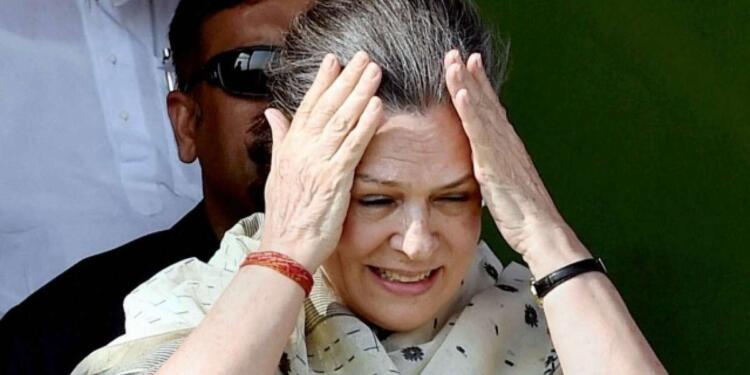Sonia Gandhi, the stalwart leader of the Congress party, stood firm in her conviction on Monday as she expressed hope that the impending Lok Sabha election results would defy the predictions laid out by the various exit polls. In an exclusive interview with PTI, she reiterated the importance of patience and anticipation, urging her party members and supporters to remain steadfast as the nation awaited the final verdict.
The prevailing sentiment among the majority of exit polls leans towards a favorable outcome for Prime Minister Narendra Modi and the BJP-led NDA coalition, with projections indicating a significant victory in the upcoming elections. While a few outliers boldly speculate that the NDA could amass over 400 seats, the general consensus gravitates towards a more conservative estimate of approximately 350 seats, a comfortable margin surpassing the requisite threshold for forming a government.
However, Sonia Gandhi, alongside her counterparts in the INDIA bloc, has vehemently criticized these exit polls, dismissing them as unrealistic and indicative of inherent biases. Former Congress president Rahul Gandhi was particularly vocal in his condemnation, dubbing the polls as “Modi media polls,” insinuating a deliberate manipulation in favor of the incumbent government.
Despite the seemingly discouraging projections presented by these exit polls, Sonia Gandhi remains resolute in her belief in the Congress party’s ability to secure victory. Alongside other senior Congress leaders, she maintains an unwavering confidence in the INDIA bloc’s potential to clinch 295 seats and spearhead the formation of the next government.
Sonia’s Political Landscape
As the political landscape of India braces itself for the tumultuous 2024 elections, Sonia Gandhi finds herself at the forefront of a daunting battle, confronting seemingly insurmountable odds. The Indian National Congress, once hailed as a formidable force in the realm of Indian politics, has gradually witnessed a decline in both popularity and electoral success in recent years.
Internal dissension, a conspicuous lack of coherent leadership, and the relentless ascendance of regional parties alongside the formidable Bharatiya Janata Party (BJP) have collectively contributed to the Congress’ prolonged struggle in regaining its erstwhile dominance. Under the astute stewardship of Narendra Modi, the BJP has steadfastly solidified its position as the preeminent political entity in India, posing a formidable challenge to opposition parties across the spectrum.
For Sonia Gandhi, the arduous journey towards electoral success is further compounded by mounting concerns surrounding her health and advancing age. Despite her unwavering dedication and steadfast commitment to the Congress cause, the pervasive skepticism surrounding her ability to navigate the complex labyrinth of Indian politics and lead the party to victory looms ominously overhead. While her determination and resilience are undoubtedly commendable, the harsh realities of Indian politics paint a sobering picture, casting a shadow of doubt over her aspirations for the upcoming elections.
Sonia’s Misconception on Exit Polls
Sonia Gandhi’s recent suggestion regarding the potential manipulation of exit polls inadvertently reveals a fundamental misunderstanding of their intrinsic nature and functionality. Exit polls, contrary to popular misconception, are not susceptible to the same vulnerabilities and pitfalls as electronic voting devices; rather, they represent a meticulously crafted methodology designed to gauge public sentiment and forecast electoral outcomes through the systematic collection and analysis of voter data.
These polls rely on a sophisticated array of statistical methodologies and sampling techniques to provide a reliable estimation of election results, drawing upon a representative sample of voters exiting polling stations. The notion of manipulating such surveys to yield predetermined outcomes is not only logistically implausible but also fundamentally antithetical to the underlying principles of democratic governance.
It is imperative to recognize that exit polls, in essence, serve as an indispensable tool for elucidating voter behavior and preferences, offering valuable insights into the broader electoral landscape. Accusations of manipulation, devoid of any substantive evidence or empirical basis, ultimately serve to undermine the integrity and credibility of the democratic process, perpetuating a culture of cynicism and distrust that undermines the very foundations of democratic governance. As such, it behooves us to approach exit polls with a discerning eye, recognizing their inherent limitations while acknowledging their indispensable role in the broader electoral discourse.
ALSO READ: How Narendra Modi’s BJP is Inspiring Conservatives Globally

























